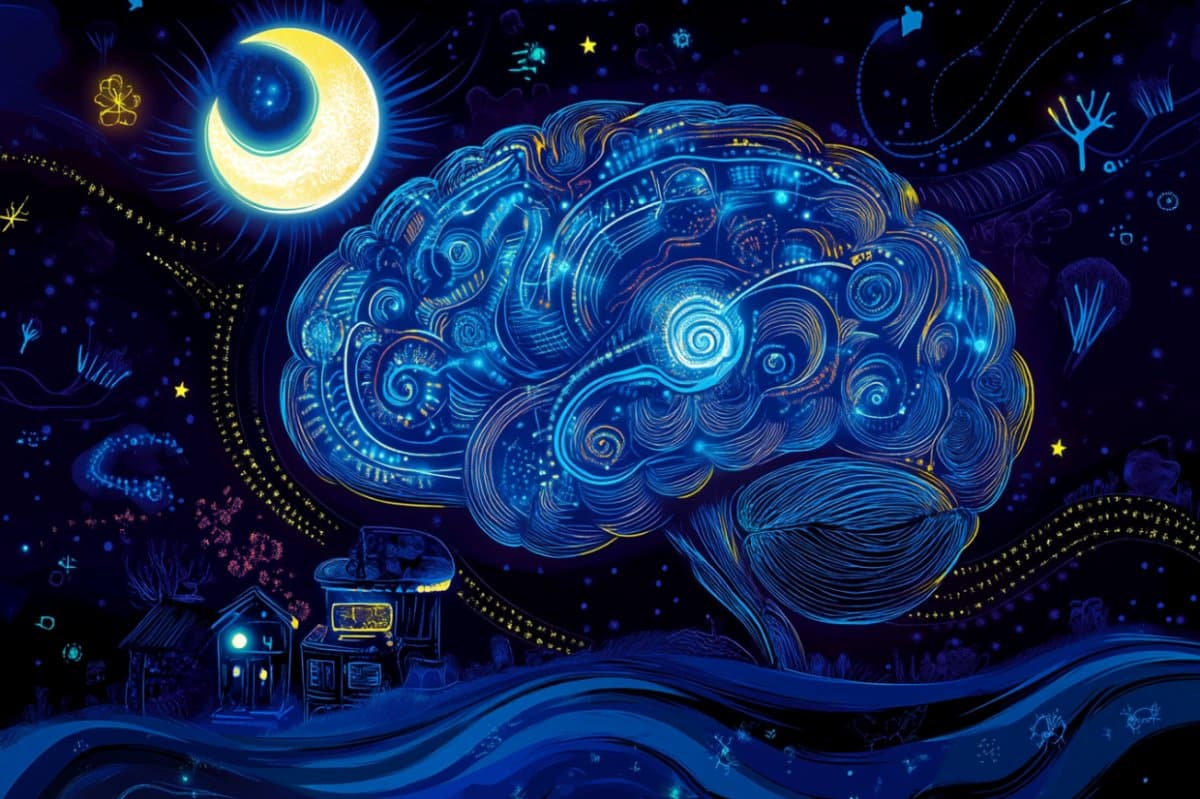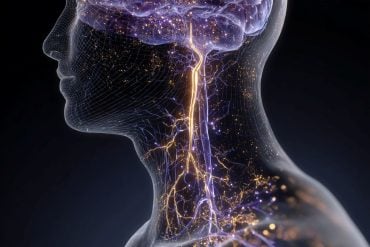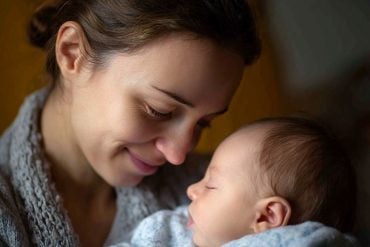Summary: People with obsessive-compulsive spectrum disorders (OCSDs), chronic tic disorders (CTDs), and ADHD often suffer from significant sleep disturbances, and a new review suggests that disruptions in the cortico-striatal-thalamo-cortical (CSTC) pathway may be the reason why.
The review highlights how dopamine and GABA dysregulation in CSTC circuitry contributes to both poor sleep and the disorders themselves, suggesting a bidirectional and additive relationship.
Subjective reports and limited objective data confirm delayed sleep onset, movement disorders during sleep, and disrupted sleep spindles in these populations. Understanding this neural link could inform individualized treatment approaches that address both the psychiatric condition and sleep health.
Key Facts:
- CSTC Dysfunction: Dysregulation in the CSTC circuit may underlie both sleep and psychiatric symptoms in OCSDs, CTDs, and ADHD.
- Bidirectional Impact: Poor sleep can worsen CSTC symptoms, while CSTC disorders themselves disrupt sleep architecture.
- Treatment Implications: SSRIs can treat core symptoms but may disrupt REM sleep, emphasizing the need for sleep-aware pharmacological choices.
Source: Wolters Kluwer Health
Increased sleep difficulties in patients with obsessive-compulsive spectrum disorders (OCSDs), chronic tic disorders (CTDs), and attention-deficit/hyperactivity disorder (ADHD) are likely due to disruptions in the cortico-striatal-thalamo-cortical (CSTC) pathway, according to a narrative review in the May issue of Harvard Review of Psychiatry.
Margaret D. Hall at Miami University in Oxford, Ohio, Erica Greenberg, MD and Kevin Gipson, MD, MS, at Massachusetts General Hospital, and colleagues also report evidence that dopamine and GABA—primary neurotransmitters in CSTC circuitry—are dysregulated in patients with these disorders.
A better understanding of how CSTC dysregulation relates to sleep disorders could lead to more effective treatments, the reviewers say.
Review also confirms subjective reports of poor sleep and insomnia with CSTC-conditions
The reviewers used PubMed, Google Scholar, PsychInfo, and Web of Science to search for relevant English-language articles published before August 2022.
They defined OCSDs as including obsessive-compulsive disorder (OCD), body dysmorphic disorder (BDD), body-focused repetitive behavior (BFRB) disorders, and hoarding disorder.
Chronic tic disorders include Tourette syndrome and chronic/persistent motor or vocal tic disorder. The team identified 42 papers: 23 on OCSDs, eight on CTDs, 10 on ADHD, and one on both CTDs and ADHD. They refer to these disorders collectively as CSTC-conditions.
Co-occurring objective sleep movement disorders were consistently reported in adults with CTDs or OCD, and similar subjective findings were documented for children with OCD, ADHD, or CTDs.
Although only a small number of studies included polysomnographic data, there was evidence of a sleep disturbance pattern with OCD, BFRB disorders, and CTDs. Subjective sleep latency problems and objective sleep spindle disruption were both common.
“The evidence reviewed in this paper supports a bidirectional, additive increase in sleep and CSTC-condition symptoms,” the reviewers write.
“In addition to evidence that disordered sleep may be intrinsic to these CSTC-conditions, poor sleep can also impair functional connectivity and may result in structural changes in the fronto-striatal circuitry, likely further exacerbating CSTC-condition symptoms.”
Determining treatments for sleep-related complaints in patients with CSTC-conditions
There are three potential approaches to treating sleep disturbances in patients with CSTC-conditions, the team notes: (1) treatment of the condition, which may indirectly treat sleep-related concerns; (2) treatment of sleep, which may indirectly treat symptoms of the CSTC-condition; and (3) treatment of both approaches simultaneously.
The most effective approach, however, may differ from person to person, contingent on the specific condition(s) and sleep problems.
The reviewers say careful treatment selection is particularly important for children taking medication for CSTC-conditions.
Clinicians must weigh “the potential long-term effects of an altered sleep architecture against the substantial risks of untreated psychopathology, which comes with its own significant sequelae,” they emphasize.
“Identifying medications that mitigate core symptoms while stabilizing or improving sleep architecture, as opposed to exacerbating existing sleep disturbances, is a critical avenue for future research.”
As an example, the reviewers cite selective serotonin reuptake inhibitors (SSRIs). These medications are the first-line treatment for OCD and BDD, but they delay the onset of rapid eye movement (REM) sleep and decrease the proportion of time spent in REM sleep.
“It will be important to understand if the degree to which an SSRI is helpful in treating OCD symptoms is moderated by its (positive or negative) impact on sleep architecture,” the authors note.
“Additionally, it will be important to explore whether these SSRI-associated sleep-related atypicalities are solely secondary to the SSRI, or perhaps would have been likely to emerge independently and secondary to the CSTC-condition itself.”
About this mental health and sleep research news
Author: Josh DeStefano
Source: Wolters Kluwer Health
Contact: Josh DeStefano – Wolters Kluwer Health
Image: The image is credited to Neuroscience News
Original Research: Closed access.
“Disrupted Cortico-Striato-Thalamo-Cortical Circuitry and Sleep Disturbances in Obsessive-Compulsive Spectrum, Chronic Tic, and Attention-Deficit/Hyperactivity Disorders” by Margaret D. Hall et al. Harvard Review of Psychiatry
Abstract
Disrupted Cortico-Striato-Thalamo-Cortical Circuitry and Sleep Disturbances in Obsessive-Compulsive Spectrum, Chronic Tic, and Attention-Deficit/Hyperactivity Disorders
The bidirectional relationship between sleep and obsessive-compulsive spectrum disorders (OCSDs), chronic tic disorders (CTDs), and attention-deficit/hyperactivity disorder (ADHD) is not well understood.
To better treat individuals with these co-occurring sleep and developmental neuropsychiatric conditions, it is necessary to determine the common neural underpinnings to then target with treatment.
Research has implicated dysregulated cortico-striatal-thalamo-cortical (CSTC) neurocircuitry in the development of CTDs, OCSDs, and ADHD.
We review current literature to assess the state of knowledge about the neurocircuitry of OCSDs, CTDs, and ADHD, and their related sleep disturbances.
Our review consistently implicates CSTC-pathway disruptions in OCSDs, CTDs, and ADHD, as well as dopamine and GABA dysregulation, primary neurotransmitters in CSTC circuitry, in sleep disorders.
In addition, we highlight reports of subjective poor sleep and insomnia in adults with OCSDs, CTDs, and ADHD, and sleep movement disorders in adults with CTDs.
The limited sleep research on youth with these conditions has demonstrated some similar findings. Unfortunately, much of the current research to date has not employed polysomnographic methods for objective sleep-related assessments.
Future research should further clarify the neural association between these neuropsychiatric conditions and sleep disturbances to better guide potential therapeutic targets.
Determining the most effective treatments for subjective sleep-related complaints in patients with these conditions will be crucial, particularly for determining treatment course—whether to prioritize treatment of the underlying condition, the specific sleep symptoms, or both simultaneously.







